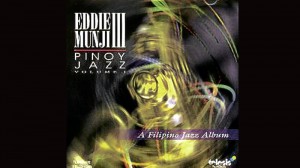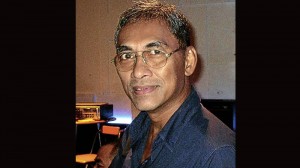The genius of Eddie Munji III
“How do you start describing a genius?” singer-songwriter and former Apo Hiking Society member Danny Javier’s replied when asked about guitarist-arranger Eddie Munji III, who died after suffering a massive stroke on Nov. 18 at the Queen Mary Help of Christians Hospital in Cardona, Rizal. Munji was 57.
“His legacy isn’t about fame or glamour,” Javier told the Philippine Daily Inquirer. “Among his peers, Eddie truly was a musician’s musician. He played the guitar, piano, bass, flute, oboe, saxophone, strings and percussion. He was a multitalented artist.”
Javier met Munji in 1973 when the latter was 18 and was chiefly a bass player. Javier recalled a memorable three-and-a-half-month US tour with Munji and drummer Tony Velarde: “We were a three-piece band. In every number, Munji played the guitar and bass alternately. I will never forget that.”
The first song Munji arranged for him, Javier said, was “Kaibigan” from the 1978 Apo album “Pagkatapos ng Palabas”: “His arrangement was simple but beautiful. That song became a hit.”
Other Apo songs that Munji arranged include “Mahirap Magmahal ng Syota ng Iba,” “Panalangin,” “Salawikain,” “Lumang Tugtugin,” “Awit ng Barkada” and “Kabilugan ng Buwan.”
Asked if Munji played a big role in Apo’s success, Javier said: “Definitely, particularly in my songs. Kahit lumilipad na ‘yung kanta, he made it soar higher.”
It was Munji’s encompassing knowledge of various instruments that made him the consummate arranger. His 1978 album “Pinoy Jazz” showcased his acumen, infusing strings and horns into his intricately-arranged versions of Filipino folk songs like “Bahay Kubo,” “Salidummay,” “Pandangguhan” and “Sarung Banggi.”
Drummer Jun Regalado and the recently departed bassist Roger Herrera played on the album. “His skills were on full display in that one,” Javier said.
Fantastic
Munji was also the guitarist on Ryan Cayabyab’s debut album, “Roots to Routes,” which was dubbed “Pinoy Jazz II.” Munji also played guitar on Cayabyab’s 1980 pop-ballet, “Rama Hari,” which will be restaged Nov. 30 at the Cultural Center of the Philippines.
Regalado, one of his frequent collaborators, described Munji as prodigious. “He was one of the youngest arrangers back then; he started in his teens. But his work always sounded very mature,” Regalado told the Inquirer. “That’s why he was given the moniker ‘Lakay’ by bass player Johnny Gosalvez.”
But Munji had his shortcomings, too. “He was erratic and unpredictable,” Regalado said. “He would be working on something, and then suddenly disappear. That’s something we can’t comprehend until now.”
Regalado acknowledged, though, that Munji thrived in and delivered under pressure. “I didn’t know how he got or fit all the ideas in his head in a short period of time. But when he was done arranging something, it sounded fantastic. Actually, everything he did was fantastic.”
Javier rued that Munji had trouble meeting deadlines. “A lot of his arrangements were done inside the studio. He was a very quick thinker. But his hands couldn’t keep up with his mind.”
Just the same, Javier said, Munji “understood what composers wanted to convey with their songs … he brought out the best in any material.”
Munji’s remains lie at the funeral chapel of the Sto. Domingo Church in Quezon City. At press time, no details about his interment were available.
















